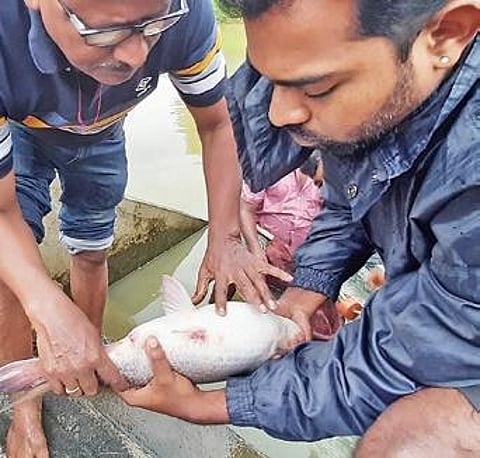

BHUBANESWAR: In a first, a new brood-stock feed developed by Central Institute of Freshwater Aquaculture (CIFA) led to off-season breeding of Indian major carps in the field conditions.
The CIFABROOD, a diet for quality seed production of Indian major carps, has helped break the seasonal barrier and both rohu and catla bred successfully in two farms in Tamil Nadu.
The scientifically developed and nutritionally balanced feed enhances egg, sperm and larval quality and hastens early maturation of gonad besides improving breeding performances.
Principal Scientist of CIFA Samiran Nandi said though the feed was tested successfully at the research station under controlled condition, it did not yield desired results in field conditions in Odisha.
“We decided to apply in breeding farms in Tamil Nadu where the climate these days is pleasant with sporadic rainfall activities. Two farms, including one private farm, were selected and both rohu and catla were bred. While 25 lakh spawns were harvested from 23.1 kg female, 11 lakh improved rohu (Jayanti) spawns were recovered from 11.3 kg female,” he informed.
Indian major carps - rohu, catla, mrigal are seasonal breeders and they breed only during monsoon (June-August) throughout the country. Though many attempts were made by CIFA to overcome the barrier and breed fish in off season (November-January), it was unaccomplished so far due to constraint of specific ambient condition.
A team of eight scientists led by Nandi has developed the feed that facilitates early spawning and improves spawn recovery. It is also suitable for multiple/repeat breeding in carp and can be given as mass feed.
Nandi said the feed was supplied to Tamil Nadu farms in September under National Fisheries Development Board (NFDB) funded project to observe possibility of maturation. The diet (two per cent of body weight) was fed for 45 days.
“The success has long term implication as Tamil Nadu can be developed into a major seed production centre especially during non-breeding season, which will contribute substantially for the aquaculture production in the country,” he hoped.